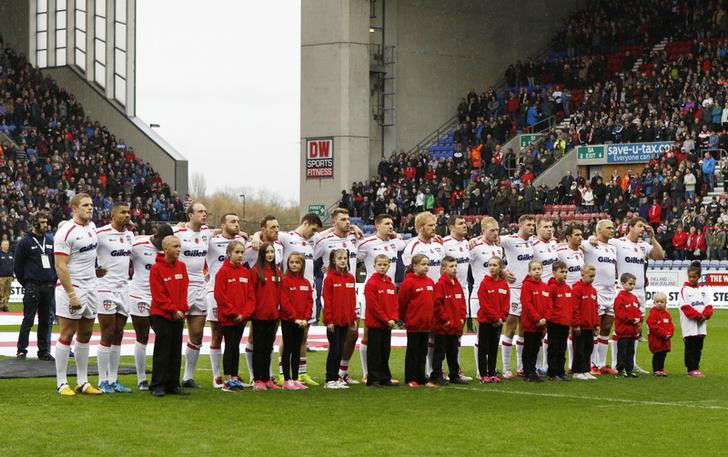

Rugby is regarded as one of the most physical sports, aside from American football. It takes determination, hard work and a whole lot of bravery. Without this, an ability to improve rugby skills probably isn’t possible. Fortunately, there are some very simply things that people can do to improve their skills fundamental to the game of rugby.
Watch What’s Trending Now!
It is actually true in any sport, that training is the key to everything. For rugby players, the important thing is to prepare the body for physical things like tackles, scrums, and taking and delivering hits. There are several ways to establish a training regimen for this sport and it will also be useful in building up strength and improving one’s skills.
ADVERTISEMENT
Lifting weights
One of the most basic forms of exercise, is weight-lifting. To improve overall performance and reach a professional level, there is a need to add more muscle mass. This can be achieved by doing bench presses, squats, deadlifts and military presses.
Rugby players should be the right size
Obviously, there is a down side to too much training. There is no point in building up all that muscle that you can barely even move your body. So, there needs to be a balance of power, strength and hypertrophy, in order to achieve peak performance.
ADVERTISEMENT
Training should be tailored for each position
Not every training regimen is the same, not even with a single team. A player who occupies one position, will have a different routine to a teammate in another position. The below table indicates the ideal training routines for each position, in terms of deadlifts, squat strength and bench presses.
ADVERTISEMENT
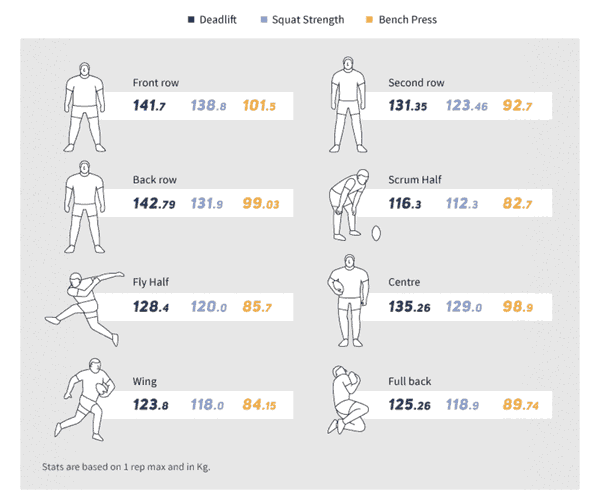
ADVERTISEMENT
Don’t slack off
We talked about overdoing it, but what about easing up on the training? Obviously, no coach or manager wants a single player slacking off on their watch. Ideally, professionals train 3.5 times a week, while semi-pros and amateurs limit themselves to 3.25 and 2.7 times a week, respectively.
Top Stories
Footage Surfaces of Puka Nacua’s Brother Samson Slapping Fan After Arrest for Allegedly Stealing Lakers’ Adou Thiero’s SUV

Footage Surfaces of Florida Police Arresting NASCAR Veteran Over Disturbing Public Misbehavior

Browns & Kevin Stefanski Sign Ousted Cowboys Player For Shedeur Sanders Before Week 16 Bills Game
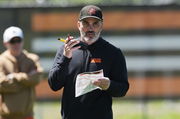
“RIP”: Prayers Pour In as Tom Brady’s Raiders Struck by Tragedy

“Rest in Peace”: Prayers Pour In From Dan Marino as Dolphins Legend Mourns Tragedy in South Florida Football
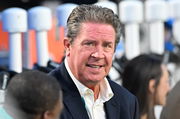
“What Do You Come Back For?”: Tony Gonzalez’s Strong Retirement Message to Travis Kelce Amid Chiefs’ Rebuild
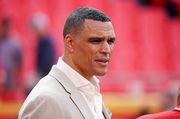
ADVERTISEMENT
Have the right nutrition
Oh course, none of that training is of any use if the athletes are not getting the right nutrition. They need to eat the right amount of high calorie food, because the sport burns a lot of energy. Additionally, professional athletes consume 15% more calories than amateur players.
Stock up on proteins
Consuming more proteins will be hugely beneficial in building up more muscle. Professional athletes need to consume around 60g more than semi-professional players or amateurs. They also tend to use more supplements to aid in recovery and strength. They are also encouraged to take in more creatine, as they tend to perform better with this natural supplement.
ADVERTISEMENT
ADVERTISEMENT
ADVERTISEMENT
ADVERTISEMENT

